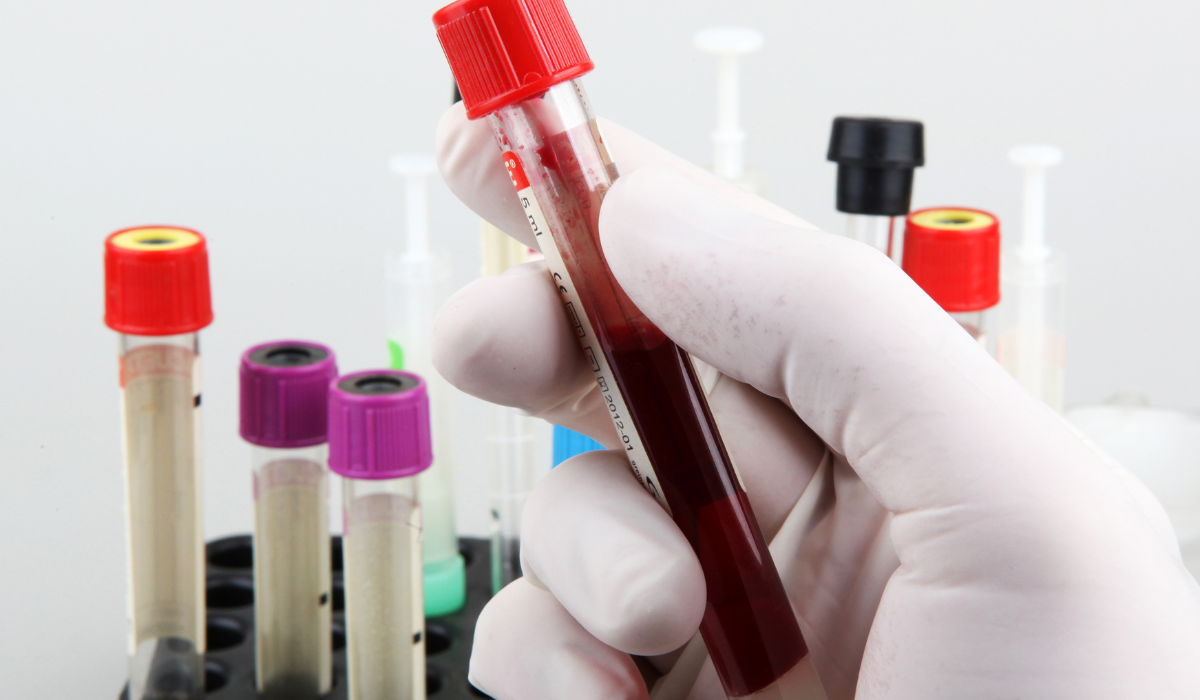Thousands of patients are diagnosed annually with thyroid disorders. However, most of them have little concern for its importance or any effect on their general health. The thyroid is a butterfly-shaped gland in the neck’s base that forms a significant part of hormone production to guide the regulation of metabolism, energy levels, heart rate, and body temperature. Thus, understanding the disorders may be a better approach to health and a good quality of life.
What Are Thyroid Disorders?
Thyroid disorders refer to all diseases that impair the thyroid gland’s ability to produce hormones. The most common types documented are:
Hypothyroidism: When the thyroid does not produce enough hormones to satisfy the body. Some of the symptoms include slight generalized illness, grossly body fatigue, weight gain, and depression. Consider visiting a doctor if you have them to get proper advice and treatment.
Hyperthyroidism: There is hyperthyroidism characterized by overproduction of thyroid hormone, hence acceleration in metabolism. The results here are usually a loss in weight, palpitation, and anxiety, hence very discomforting and debilitating.
According to the American Thyroid Association, nearly 20 million Americans are suffering from some kind of thyroid disease, and the majority are undiagnosed. Therefore, education regarding these diseases is also needed.
Recognizing the Symptoms
Early recognition of symptoms of thyroid disorders can help lead a patient to an early doctor visit to prevent or control the disease well and before it becomes serious. Some of the common symptoms one should be watchful of are as follows:
Hypothyroidism Symptoms
Fatigue: Feeling very tired and worn out nearly all the time may impede daily activities.
Weight Gain: Uncalled-for weight gain even when diet is normal can be considered a red flag.
Cold Sensitivity: The patient feels unusually cold, even in mild temperatures, which often leads to hypothyroidism.
Dry Skin and Hair: Noticeable changes in skin texture, brittle nails, and thinning hair are often caused by this condition.
Mood Changes: Such feelings of depression or anxiety will be heightened so that mood changes are ascertained.
Hyperthyroidism Symptoms
Weight Loss: Unexpected weight loss or, occasionally, a normal appetite and eating pattern, might be dangerous, thus a thorough assessment is necessary.
Increased Heart Rate: Having a racing or irregular heartbeat may start bothering the patient due to feelings of anxiety.
Nervousness or Irritability: The majority of the patients with hyperthyroidism are anxious or restless, and even simple tasks are inconveniently cumbersome.
Heat Intolerance: A person with hyperthyroidism becomes heat intolerant and sweats excessively; this can be very bothersome and hard to live with.
Difficulty Sleeping: The most common problem among people with hyperthyroidism is the difficulty in falling asleep or staying asleep, thus leaving them drained throughout the day.
What Causes Thyroid Disorders?
They have multiple causes and the causes are very important for prevention and proper management.
Autoimmune Disorders: In the case of Hashimoto’s thyroiditis and Graves’ disease, this is a form of immune system disorder in which the attack carried out goes wrong for the thyroid. In Hashimoto’s, it leads to hypothyroidism. In Graves’, it leads to hyperthyroidism.
Iodine Deficiency: This is a very critical requirement for the production of hormones. The lack of proper adequate intake of iodine may lead to hypothyroidism. Some people even add iodized salt to their diet, but there is always a risk of deficiency that still exists for them due to their community habitats.
Genetics: A risk factor is a family history of thyroid disorders. You ought to test for such a disorder if there are such medical histories in the family.
Age and Gender: More than the rest, it is women, especially those over 60 years, who likely suffer from thyroid disorders due to the reduction of hormone production in this age group. Women, particularly those aged 60 years, should be watchful of thyroid disorders.
Statistics Worth Noting
Prevalence Among Women: Thyroid disorders are more prevalent among women than men. Five to eight times women are more likely to suffer from thyroid disorders, so the awareness and screening must be gender specific.
Age Factor: Hypothyroidism increases due to the growing age of people and reaches up to 10 percent prevalence among females above the age of 60. Screening of thyroid function in the aforementioned age group is very essential.
Global Impact: There are more than 300 million thyroid disorders worldwide. As such, it is clear that this is a major public health concern.
Diagnosing Thyroid Disorders

You probably need to see a doctor if you suspect that you or a person is having a thyroid disorder. Various steps for diagnosis include many easy procedures.
Blood Tests: Blood samples enable your health care provider to get the levels of hormones such as TSH (Thyroid Stimulating Hormone), T3, and T4. Such simple tests give a lot of information related to the hormonal condition of a human being.
Imaging Tests: The physician might put you to do an ultrasound or other imaging tests when examining for nodules inflammation and possibly other issues associated with your thyroid. It is a simple way of examining its conditions.
Biopsies: A small tissue sample may be collected for analysis in some instances. This step is aimed at excluding thyroid cancer or other serious conditions for which these nodules might be present.
Treatment Options for Thyroid Disorders
Well, the good news is that almost all cases of thyroid diseases can be managed with the appropriate care. Here are some of them:
For Hypothyroidism
Hormone Replacement Therapy: Mostly, patients are given synthetic thyroid hormone by prescription to send hormone levels back to normal range. Oral drugs are usually administered once a day; gradually, the hormone level goes to an average range.
Regular Monitoring: Given at regular periods, which helps check whether proper dosages are administered and if the thyroid is functioning correctly. The dose must be adjusted if symptomatology changes or studies indicate changes.
For Hyperthyroidism
Antithyroid Medications: Medications like methimazole decrease hormone production and relieve symptomatology. Patients need to be monitored very frequently for effectiveness.
Radioactive Iodine Treatment: Patients receive radioactive iodine that devastates the overactive thyroid cell mass. For most patients, it is an extremely successful course of treatment.
Surgery: The part or the entire thyroid gland will be removed in serious cases where there is suspicion of malignancy or goiter. Such surgery relieves symptoms and prevents complications.
Lifestyle Changes and Management
Some lifestyle changes may help manage thyroid disorders more than the medications used for treatment are as follows:
Balanced Diet: Be ready to prepare and consume a healthy balanced diet consisting of fruits, vegetables, whole grains, and lean proteins. For hypothyroidism patients, increase the amount of iodine supplement to adequate levels but not excessive.
Regular Exercise: An active lifestyle promotes a healthy weight as well as greater energy in everyone. Try to achieve at least 150 minutes of moderate-intensity exercise in one week-do it with enjoyment.
Stress Management: Management of stress is very important to your thyroid health; happily enough, you can keep your stress level at bay with yoga, meditation, and deep breathing exercises. After all, your emotional well-being is just as vital as your physical well-being!
Conclusion
There is always a need to understand thyroid disorders for good health and wellness, including recognition of symptoms or other causes. Most importantly, proper treatment helps manage such conditions better. If at any point you are showing signs of thyroid disorders, do not hesitate to seek a healthcare provider for advice and support. Early diagnosis and treatment improve your quality of life significantly.
FAQ’s
What are the main types of thyroid disorders?
There are two major categories of thyroid disorders, fatigue produced by underactivity-and hyperthyroidism anxiety created by overactivity. Each has distinct symptoms and treatments.
What symptoms can indicate a thyroid condition?
There are a few symptoms I watch for, though: fatigue, weight gain or loss, mood swings, and sleep disturbances. If you are concerned, then request from a doctor some blood tests.
Are thyroid disorders hereditary?
Yes, there is a bit of a genetic link. So if you have family members who have had thyroid problems, then there goes your risk factor. So take it up with your healthcare provider.
Can thyroid disorders be cured?
Thyroid disorders are irreversible but can be dealt with, and managed if you will by medication, lifestyle, and regular observations of the patient.






